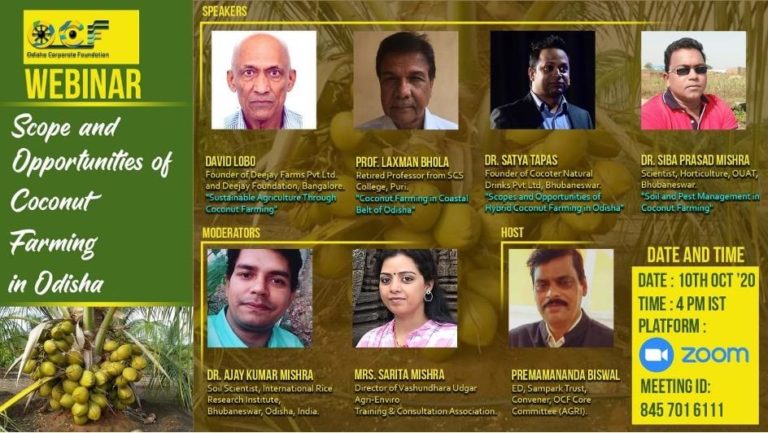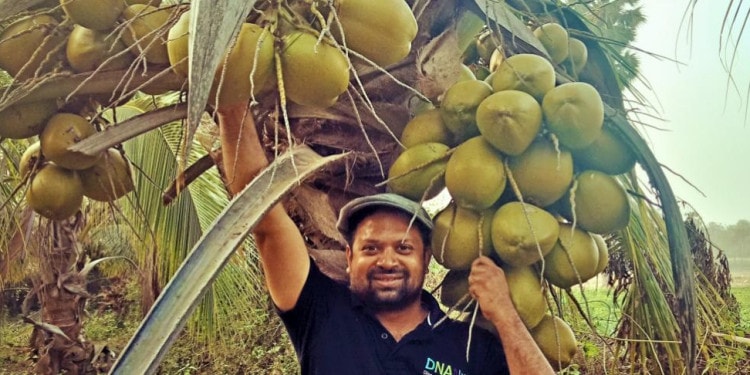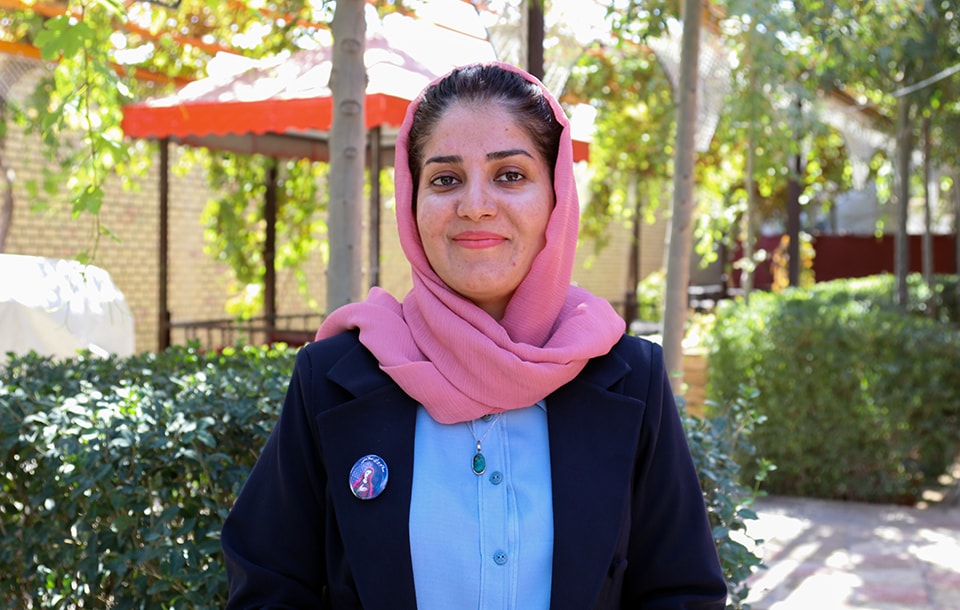The increasing frequency of cyclones is threatening the local coconut industry of Odisha, India. Their solution: the dwarf coconut tree.
Hybrid coconut cultivation as a climate resilient practice in Odisha to serve as a safety net mechanism for farmers
India is one of the topmost coconut-producing countries and occupies the third position worldwide in coconut production. Among the other coconut growing states in the country, Odisha has secured the fifth position in its cultivation. However, due to repeated cyclones, the productivity of coconuts has been drastically reduced, affecting the livelihood of many coconut farmers in the state.
The recent Fani cyclone of 2019 devastated more than 1.4 million indigenous coconut trees in the state of Odisha thereby ruining the livelihood of several millions of farmers. Due to climate change and human-centric rapid growth and development, cyclonic events are becoming more frequent and intense leading to long-term adverse impacts on survival and threatening sustainable development.
In this light, a shift from indigenous tall coconut farming to dwarf hybrid coconut farming is an opportunity to catalyze sustainable development. Hence, with the aim of developing coconut farmer’s resilience by enhancing their awareness of dwarf hybrid coconut varieties, International Rice Research Institute (IRRI) in collaboration with the CGIAR Research Program on Climate Change, Agriculture and Food Security (CCAFS), Cocoter Natural Drinks Private Limited and Odisha Corporate Foundation (OCF) organized a webinar.
Related Articles: The Caribbean Coconut Industry | Climate Resilience in Farmer Field Schools | What is Climate Resilience?
WEBINAR TO PROMOTE DWARF HYBRID COCONUT
As part of the IRRI-CCAFS initiative, Cocoter in association with OCF conducted a webinar on “Scope and Opportunities of Coconut Farming in Odisha” on 10th October 2020. The webinar focussed on the aspect of sustainable agriculture through coconut farming and speakers shared their experience with coconut farming and its impact on the lives of farmers.

Prof. Laxman Bhola shared his experience on coconut farming in the coastal belt of Odisha, focussing on the challenges and possible solutions to overcome them. Dr. Satya Tapas delivered a talk on “Scope and Opportunities of Hybrid Coconut Farming in Odisha.” He discussed the advancement of coconut farming and opportunities in value-added products. Dr. Siba added to the discussion and talked about the selection of hybrids, pests, and soil management for coconut farming. He also talked about the dwarf coconut plantation drive in Khordha, Odisha, and Deoria UP through Cocoter initiatives.
The webinar concluded that the promotion and adoption of hybrid dwarf coconut is a great opportunity for small and marginal farmers that are facing climate change. Hybrid dwarf coconut farming provides more remunerative and resilient farming opportunities for the farming community of Odisham, not only because it is more productive, but also because it limits risks that are associated with conventional tall coconut varieties. Hence, supporting partnerships between different stakeholders to drive a dwarf variety of hybrid coconut plantations is a low-cost solution to develop climate resilience.
Editor’s Note: The opinions expressed here by Impakter.com contributors are their own, not those of Impakter.com. In the Featured Photo: Bountiful tender coconut production in Andhra Pradesh. Featured Photo Credit: S. Tapas (Cocoter pvt ltd).










